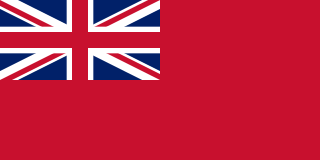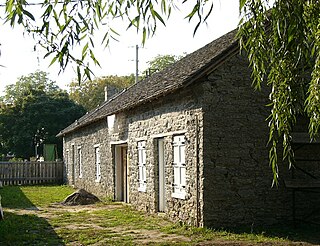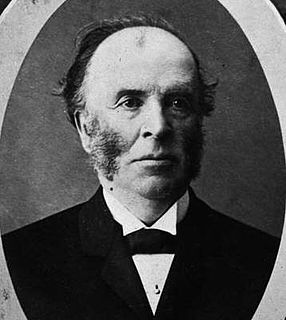George Barker Hall (1819 [1] – February 1858 [2] ) was a lawyer, judge and political figure in Canada West. He represented South Northumberland in the Legislative Assembly of the Province of Canada from 1844 to 1847 as a Conservative. [1]
The Legislative Assembly of the Province of Canada was the lower house of the legislature for the Province of Canada, which consisted of the former provinces of Lower Canada, then known as Canada East and later the province of Quebec, and Upper Canada, then known as Canada West and later the province of Ontario. It was created by The Union Act of 1840. Canada East and Canada West each elected 42 members to the assembly. The upper house of the legislature was called the Legislative Council.
He was born in Brooklyn, New York, later settling in Peterborough, Upper Canada. Hall owned a flour mill in Peterborough. [3] In 1847, he was named a judge for the Colborne District. [4] Hall served briefly as an ensign in the local militia around the time of the Upper Canada Rebellion. He died suddenly [1] at Beavermead, his residence near Peterborough, [2] at the age of 39. John A. Macdonald was executor for Hall's estate. [1]

Peterborough is a city on the Otonabee River in Central Ontario, Canada, 125 kilometres (78 mi) northeast of Toronto and about 270 kilometers (167 mi) southwest of Ottawa. According to the 2016 Census, the population of the City of Peterborough was 81,032. The population of the Peterborough Census Metropolitan Area (CMA), which includes the surrounding Townships of Selwyn, Cavan Monaghan, Otonabee-South Monaghan, and Douro-Dummer, was 121,721 in 2016. In 2016, Peterborough ranked No. 32 among the country’s 35 census metropolitan areas according to the CMA in Canada. Significant growth is expected starting in late 2019 when the Ontario Highway 407 extension is completed, connecting it to Highway 115/35 south of Peterborough. The current mayor of Peterborough is Diane Therrien.

The Province of Upper Canada was a part of British Canada established in 1791 by the Kingdom of Great Britain, to govern the central third of the lands in British North America, formerly part of the Province of Quebec since 1763. Upper Canada included all of modern-day Southern Ontario and all those areas of Northern Ontario in the Pays d'en Haut which had formed part of New France, essentially the watersheds of the Ottawa River or Lakes Huron and Superior, excluding any lands within the watershed of Hudson Bay. The "upper" prefix in the name reflects its geographic position along the Great Lakes, mostly above the headwaters of the Saint Lawrence River, contrasted with Lower Canada to the northeast.

The Upper Canada Rebellion was an insurrection against the perceived oligarchic government of the British colony of Upper Canada in December 1837. While public grievances had existed for years, it was the rebellion in Lower Canada that emboldened rebels in Upper Canada to openly revolt soon after.










